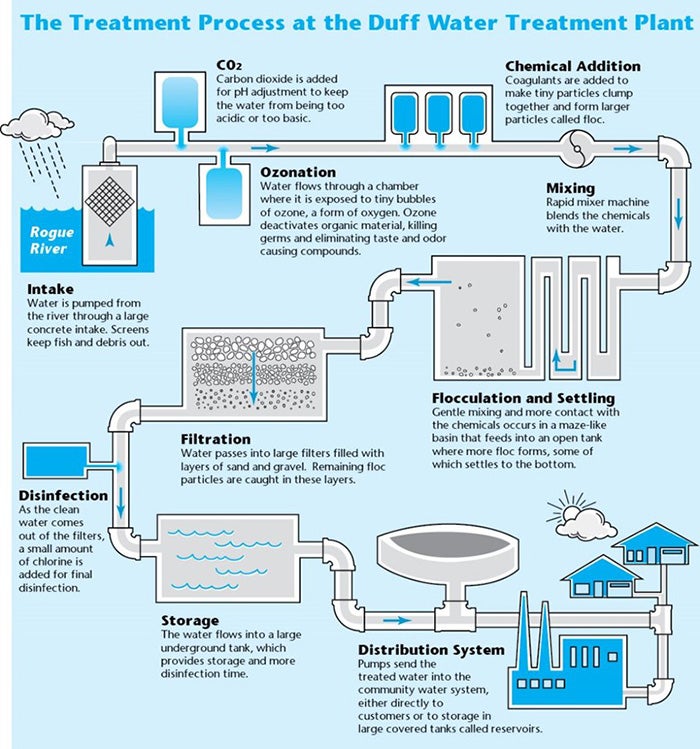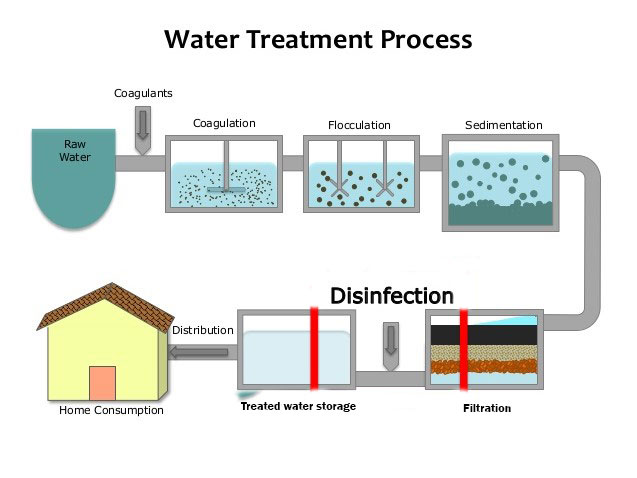Exploring Water Technology Startups: How They Revolutionize Lasting Solutions
Water Technology start-ups are becoming crucial players in the pursuit for lasting services to worldwide water problems. These firms take advantage of ingenious innovations to enhance water efficiency and management. Their payments attend to pressing challenges such as deficiency and contamination. Regardless of their capacity, they encounter different obstacles that could influence their success. Recognizing these dynamics clarifies the future of water sustainability and the function these start-ups may play in shaping it.
The Value of Water Technology in Today's World
As international water scarcity intensifies, the significance of water Technology becomes progressively apparent. Water Technology plays an essential function in resolving the difficulties postured by diminishing fresh water resources and raising need. It encompasses a wide series of developments, consisting of advanced filtering systems, wastewater therapy technologies, and wise watering remedies. These developments not just boost the efficiency of water use however additionally advertise sustainable practices throughout numerous sectors, including agriculture, market, and city growth.
The value of water Technology expands past source management. It fosters resilience against climate modification effects, such as floodings and dry spells, by supplying flexible options for water preservation and monitoring. In addition, it sustains public wellness by making certain accessibility to tidy and secure alcohol consumption water. As the globe encounters expanding water-related difficulties, the combination of sophisticated water technologies is important for promoting sustainable development and safeguarding water schedule for future generations.
Cutting-edge Solutions From Water Technology Startups
While standard methods to water administration have offered their objective, a new age of water tech startups is revolutionizing the market with ingenious services (Water Technology Startups). These companies utilize sophisticated innovations to deal with pressing water concerns, such as shortage, contamination, and inefficient circulation. Several startups utilize artificial knowledge and maker knowing to optimize water use and predict need, leading to more lasting practices
Additionally, numerous firms concentrate on establishing advanced filtering systems that remove toxins and make water safe for intake. Others check out decentralized water therapy innovations, allowing neighborhoods to handle their water resources better. Furthermore, some start-ups are pioneering wise watering services that decrease water waste in agriculture, advertising environmental conservation.
Case Studies: Successful Water Technology Startups
Many water Technology start-ups have actually become leaders in dealing with worldwide water obstacles via innovative methods. One significant instance is Xylem, which concentrates on water analytics and smart infrastructure to optimize water use and minimize waste. Their options have actually been applied in numerous municipalities, demonstrating significant enhancements in water administration effectiveness.
One more successful startup, No Mass Water, has established solar-powered hydropanels that draw out water vapor from the air, supplying sustainable drinking water in deserts. Water Technology Startups. This Technology has been deployed in numerous nations, making certain areas have accessibility to tidy water
AquaVenture Holdings runs a diverse profile of water-as-a-service remedies, resolving water shortage with desalination and wastewater treatment. Their projects have actually verified necessary in regions facing severe water scarcities, showcasing the capacity of innovative water technologies to develop enduring, positive effects. These situation studies highlight the transformative possibility of start-ups in the water Technology industry.
The Role of Smart Technology in Water Monitoring
Smart Technology plays a vital function in modern-day water monitoring by leveraging IoT applications to optimize source use. Data analytics boosts effectiveness by offering workable insights, while remote monitoring options enable real-time oversight of water supply. Together, these innovations change how water is taken care of, promoting sustainability and functional effectiveness.
IoT Applications in Water
As water deficiency and administration obstacles increase globally, the assimilation of Internet of Points (IoT) applications has actually emerged as a crucial service in maximizing water resources. IoT Technology assists in real-time monitoring and analysis of water supply, enabling a lot more efficient usage and monitoring. Sensors deployed in different water infrastructures can track high quality, circulation prices, and leakage, supplying valuable data to stakeholders. This information encourages customers and energies to make informed decisions, minimizing waste and boosting conservation efforts. Furthermore, clever watering systems utilize IoT to optimize water shipment for farming, ensuring that crops get the appropriate quantity of water at the right time. In general, IoT applications are changing typical water monitoring practices, fostering sustainability and resilience in water resource systems.
Data Analytics for Effectiveness
Taking advantage of information analytics is crucial for enhancing efficiency in water management. Water Technology startups are increasingly utilizing advanced analytics to optimize resource allotment and minimize waste. By assessing information from numerous resources, these start-ups can determine patterns and patterns that notify much better decision-making. Anticipating analytics can forecast water demand, allowing energies to readjust supply as necessary, therefore reducing shortages and surpluses. Furthermore, real-time data processing makes it possible for the prompt detection of leaks and inadequacies within circulation systems, significantly decreasing functional expenses. Data-driven understandings equip stakeholders to implement targeted preservation techniques, cultivating sustainable practices. Basically, integrating information analytics into water monitoring not only simplifies procedures but likewise promotes long-lasting sustainability in water resource use.
Remote Monitoring Solutions
While standard water management systems usually battle with inadequacies, remote tracking remedies are transforming just how water resources are handled. These innovative innovations make it possible for real-time data collection and evaluation, allowing stakeholders to keep track of water top quality, flow rates, and use patterns from afar. Utilizing sensors and IoT tools, remote monitoring offers prompt insights that help with aggressive decision-making. This change not only improves functional performance but likewise advertises sustainability by lowering water waste and optimizing resource allowance. In addition, remote monitoring systems can determine prospective concerns prior to they escalate, thus lessening the threat of contamination or framework failure. As water Technology start-ups continue to develop these services, the market is positioned for substantial advancements in sustainable water management practices.
Challenges Facing Water Technology Startups
Water Technology startups experience considerable difficulties that can impede their development and success. Secret problems consist of protecting appropriate funding, navigating with complicated regulative atmospheres, and completing in a jampacked industry. These barriers call for critical preparation and advancement to get rid of.
Funding and Investment Hurdles
Although development in water Technology holds immense potential for addressing international obstacles, start-ups in this industry typically face significant financing and financial investment obstacles. Lots of investors continue to be careful, perceiving the water field as risky due to its intricate regulative landscape and long advancement timelines. Additionally, start-ups typically struggle to show immediate productivity, which can discourage possible backers. Standard venture funding may ignore water technology, preferring sectors with quicker returns, such as technology or consumer products. Moreover, protecting gives and government financing can be competitive and lengthy, more complicating monetary security. Water Technology Startups. Consequently, lots of innovative water Technology startups discover themselves in a perilous position, needing imaginative funding techniques to browse these economic obstacles and achieve their goals
Governing Conformity Issues
Guiding regulatory compliance is a considerable obstacle for start-ups in the water Technology sector, as they should face a myriad of neighborhood, nationwide, and international policies. These guidelines usually encompass water quality standards, environmental security legislations, and safety and security methods, which can differ extensively throughout territories. Start-ups might locate it hard to navigate this complex landscape, particularly when useful site scaling operations or entering new markets. The costs associated with compliance can be substantial, diverting sources far from technology and item growth. In addition, hold-ups in acquiring needed licenses or certifications can hinder growth and market click over here access. Subsequently, a durable understanding of regulative frameworks is vital for these startups to guarantee lasting procedures and prevent prospective legal repercussions.
Market Competitors Characteristics
As water Technology startups arise in an affordable landscape, they deal with numerous obstacles that can hamper their growth and innovation. Developed business frequently control the marketplace, leveraging resources and experience to keep their settings. Startups fight with restricted financing, which limits research and growth abilities, making it difficult to contend on Technology and pricing. In addition, the rapidly evolving nature of water innovations demands continuous adaptation, more straining start-up resources. Regulative hurdles can make complex market entry, as compliance with ecological standards is essential yet expensive. Ultimately, drawing in skilled skill in a niche field offers another challenge, as bigger firms might supply more attractive work bundles. As a result, these variables create a complicated atmosphere for water Technology start-ups intending to succeed.

The Future of Water Technology and Sustainability

The future of water Technology will likely concentrate on incorporating expert system and information analytics to enhance water distribution and use patterns. By using real-time data, companies can forecast lacks and manage sources a lot more efficiently. Moreover, lasting methods will certainly end up being a cornerstone of the sector, motivating circular economic situations where water is reused and dealt with. Ultimately, the ongoing evolution of water Technology will certainly be important in developing durable frameworks with the ability of fulfilling the challenges postured by climate modification and populace growth while advertising environmental stewardship.
Often Asked Inquiries
What Are the Key Metrics for Reviewing Water Technology Startups?
Key metrics for examining water Technology start-ups include market capacity, scalability, consumer acquisition expenses, revenue growth, modern technology advancement, regulatory conformity, ecological impact, competitive benefit, and group proficiency, all important for determining long-lasting practicality and success.
How Can Individuals Support Water Technology Innovations?
People can sustain water Technology innovations by purchasing startups, promoting for plan adjustments, joining community efforts, sharing understanding concerning lasting techniques, and advertising awareness of water issues through social networks and regional occasions.
What Prevail Financing Resources for Water Technology Startups?
Usual financing resources for water technology start-ups consist of endeavor resources, government grants, crowdfunding platforms, angel financiers, and corporate collaborations. These monetary avenues aid assist in advancement and development in lasting water administration innovations.

Which Industries Benefit Most From Water Technology Advancements?
Industries such as farming, power, manufacturing, and community services profit substantially from water Technology improvements. These developments enhance water performance, lower expenses, and promote lasting techniques, eventually adding to ecological preservation and resource monitoring.
Are There Any Governing Difficulties Particular to Water Modern Technology?
Yes, water Technology encounters regulative challenges, consisting of compliance with ecological requirements, allowing processes, and differing local regulations. These intricacies can hinder technology and slow down the implementation of brand-new technologies in the water monitoring industry.
Water Technology start-ups are emerging as essential players in the pursuit for sustainable remedies to worldwide water concerns. As worldwide water deficiency increases, the relevance of water Technology ends up being increasingly evident. Others explore decentralized water treatment modern technologies, allowing areas to manage their water resources extra efficiently. An additional effective startup, No Mass Water, has actually established solar-powered hydropanels that remove water vapor from the air, providing sustainable alcohol consumption water in dry regions. Their projects have actually confirmed vital in go to website areas facing severe water lacks, showcasing the possibility of innovative water innovations to produce long-term, positive impacts.